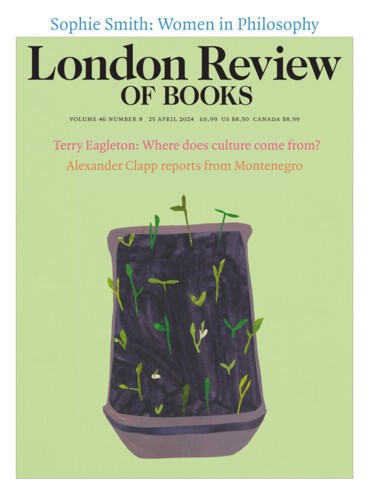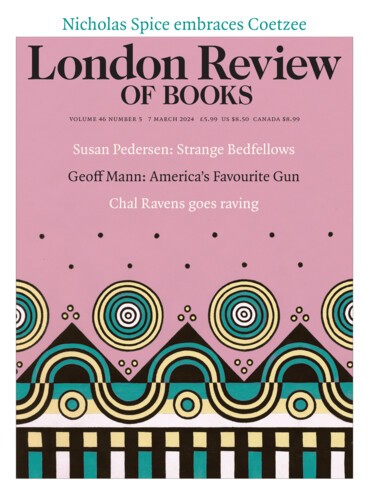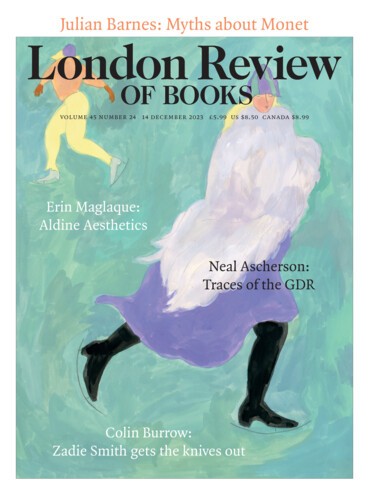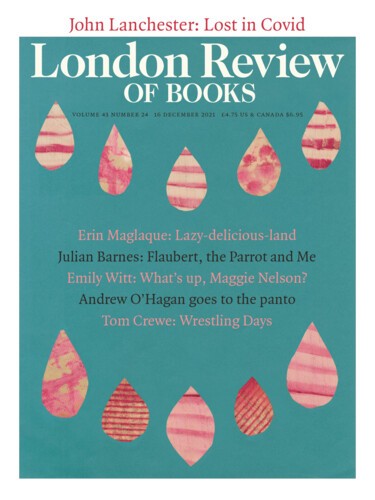On Pockets
Susannah Clapp, 25 April 2024
When I complain it is sexist, the men on the door think I am having a laugh. Every week before being allowed into a theatre I have to prove I’m not dangerous by opening my bag for inspection. Meanwhile my male companion is invariably waved through – though that bulge in his pocket could be a knife.
Thanks to Hannah Carlson, I now regard this ritual as part of a widespread garment...





